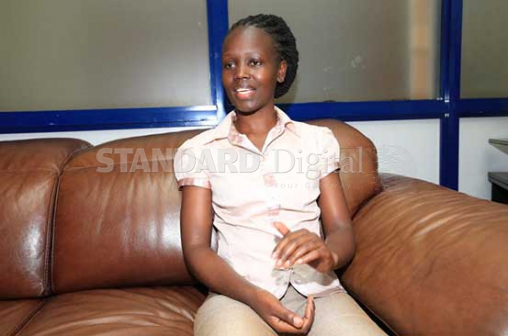
Hellen Mwai has one image from her childhood lodged firmly in her mind.
She remembers it with much fondness and nostalgia – it is the image of her elderly neighbour in Karatina walking home from work, wearing a pristine white dress, black shoes and a hat.
"She was a nurse and I admired her so much. She projected the image of a composed person who had the best job on earth," says Ms Mwai.
By the time Mwai was a teenager, the popularity of medical shows aired on TV had solidified her resolve to become a nurse. She got a thrill from watching nurses care for patients and give life to those in critical condition.
After high school, she registered in a nursing school to study for a diploma in nursing and is now a qualified nurse. She has worked in the Critical Care Unit at Mama Lucy Hospital for almost 10 years.
But she says nothing prepared her for what she found in the field that appealed to her from her childhood.
She says her job is filled with uncertainty and challenges, with only a few fragments of satisfaction coming through when she is able to use her training to save a patient's life.
Her alarm clock is always set for 5.30 am. And when she steps out of her house, she is not sure when she will return. It all depends on how many patients are wheeled into the accident and emergency ward.
Mwai has to be at work by 7.20am to relieve her colleagues from the night shift. She immediately begins with ward rounds to check on patients.
"People think nurses just follow doctors, inject patients and dress wounds. We do so much more," she says.
On a typical day, she cares for between 40 and 100 patients. Working for the accident and emergency unit means she is always racing against time.
"You critically monitor the heartbeat, spikes in temperature, bleeding, any abnormality... every single second matters. Life can be lost in a millisecond and we are there to do the best we can. That is what nursing is all about," she says.
One of her most trying times was after the accident involving an Umoinner bus that was hit by a train in 2013.
"I had not even changed into my nurse's uniform when ambulances started streaming in. Patients wailing, so much blood and panic... and all eyes are on you to do something," she says.
Being in the accident and critical care section has also exposed her to loss of life. She says although she has handled a lot of death in the course of her work, she is still learning to live with it.
"You are a nurse, but also human. Going home after losing someone you earnestly tried to save can weigh you down," she says.
The most discouraging part of the profession is when people treat her like a subordinate who deserves the Sh20,000 pay she earns per month.
"I have met many people who treat nurses like people who do any random jobs that can be done by anyone who is not trained. It is so unfortunate, because even dressing a wound needs training," she says.
Nursing is not a job, it is a calling, she says.
"People think nurses are subordinates who sit in the hospital to sip tea and gossip. We are caregivers. We handle people who are so incapacitated that we have to do everything for them - clean them, counsel them and sometimes even wipe their tears when they are consumed by the reality of what is happening," she says.
She says the fight for better salaries is not selfishness but rather driven by a need for recognition and a better life based on the services they provide.
"I have a three-year-old son and sometimes I get home so exhausted yet he wants me to play with him," she says.
Still, with or without a bigger salary, Mwai says she loves her job, with all its pain and sacrifice.
"Sometimes I spend the whole day on my feet. I miss lunch and by the time I get home, I am too tired to eat," she says.
So how does she survive on Sh20,000 a month?
Debt, she responds. Like many of her colleagues, she is constantly borrowing - from the vegetable vendor to friends with something to spare - to make ends meet.
"Medics in Kenya need to be paid well because they do much more than their job description. Sometimes, we even give bus fare to patients who are too poor to raise the money to go home," she says.
 The Standard Group Plc is a multi-media organization with investments in media
platforms spanning newspaper print
operations, television, radio broadcasting, digital and online services. The
Standard Group is recognized as a
leading multi-media house in Kenya with a key influence in matters of national
and international interest.
The Standard Group Plc is a multi-media organization with investments in media
platforms spanning newspaper print
operations, television, radio broadcasting, digital and online services. The
Standard Group is recognized as a
leading multi-media house in Kenya with a key influence in matters of national
and international interest.











